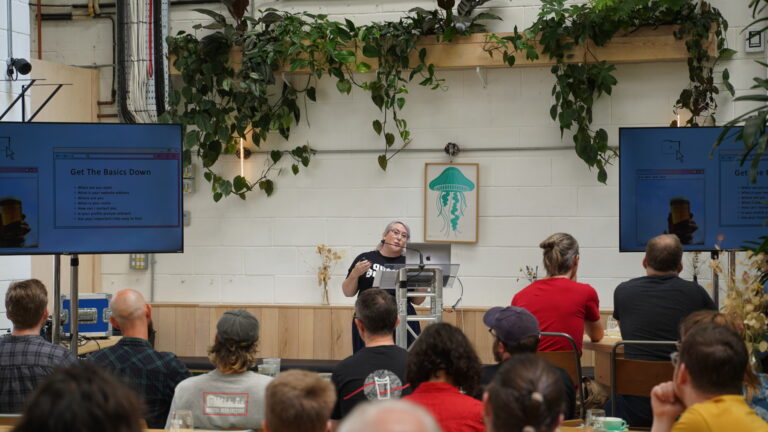In an ever-changing environment, breweries can use renewable energy technologies to reduce their energy costs, minimize their carbon footprint, and enhance their sustainability profiles. In this feature, we look at some of the ways your business can utilise these to improve your brewing business across the board.
Incorporating renewable energy technologies not only aligns with environmental stewardship but also provides tangible economic, operational, and reputational benefits, making it a strategic choice for breweries looking to thrive in the modern business landscape. And it’s all part of the bigger picture, too.
As Tim O’Rourke, founder of The Brilliant Beer Company tells us, last year was the warmest year on record with an average temperature increase of 1.35C above pre-industrial times.
For consecutive months, he explains, the increase in temperature reached 1.5C, which is the maximum limit set at COP21 in Paris in 2015.
“There is a clear link between climate change and the concentration of carbon dioxide in the atmosphere, insulating the Earth and preventing heat escaping,” he explains.
“For centuries emissions were balanced by the natural carbon cycle where carbon dioxide is taken up by plants on land and algae in oceans to maintain a stable atmospheric CO2 concentration of under 300 mg per litre of air.”
O’Rourke adds: “After 1900, industrialisation, burning fossil fuels, (coal, gas, and oil) released bound carbon dioxide into the atmosphere overwhelming natural cycles, resulting in higher concentrations of greenhouse gases which has risen to 424 mg per litre of air last year.
“CO2 remains in the atmosphere for between 300 to 1000 years and if we are to continue to enjoy our current quality of life, then all individuals and stakeholders in industry and government must work together to reduce carbon emissions immediately.”
By implementing renewable energy technologies in our breweries, we can collectively benefit from cost savings.
Renewable energy systems like solar panels and wind turbines can significantly lower electricity costs by generating on-site power, reducing reliance on the grid while renewable energy can protect breweries from volatile energy prices, providing a more predictable and stable cost structure over time.
There are also obvious environmental benefits. Breweries can significantly cut their greenhouse gas emissions, contributing to the fight against climate change while utilizing clean energy sources helps in preserving natural resources and reducing pollution, aligning with broader environmental sustainability goals.
It’s also worth noting that adopting renewable energy aligns with broader CSR goals, demonstrating a brewery’s commitment to responsible and ethical business practices.
Also, breweries adopting renewable energy can position themselves as leaders in sustainability within the industry, setting benchmarks and encouraging others to follow suit.
Solar-powered beer in Cornwall
One such company that has been working with breweries to transform their business proposition is Wadebridge-based CleanEarth, which has carried out a number of solar power installations across the UK.
“In simple terms it’s sunnier in the south, and a gently-pitched, south-facing roof will perform best. But we’ve completed successful solar projects a long way north of our HQ in Cornwall, and on some pretty odd-shaped roofs,” they explain.
“Every solar PV system needs to be sized for the expected electricity demand – not just to fill the available space. Getting the design right for the demand profile is critical in making the installation a commercial success.”
Their latest brewery install took place at Bluntrock Brewery in St Minver, on Cornwall’s north coast, which has joined a growing band of breweries that have invested in rooftop solar power.
“They recently installed a solar PV system that will generate over 80,000 kWh per year, cutting their energy costs and significantly reducing their carbon emissions,” says Ed Lennon, commercial manager at CleanEarth.
Hugo Roads, co-founder of Bluntrock, adds: “When we first decided to pursue our brewery expansion project, we were determined to maximise the sustainable potential of our future operations, and to include sustainability as a core way of life at Bluntrock. Now, we’re generating our own clean energy as part of our commitment to the net zero mission.”
The system was installed by CleanEarth Energy and their in-house team, who have recently completed projects for Dartmoor Brewery, Wiltshire’s Dark Revolution, and St Ives Brewery (and their cold store).
Lennon explains why solar PV is proving so popular with brewers: “It takes a fair amount of energy to brew beer, and that’s costing a lot more than it did a couple of years ago.”
The drive to decarbonise is also gaining urgency. “You just can’t ignore it,” says Lennon. “And the brewing industry is more tuned-in to the environment than most, because it relies so much on natural ingredients and processes.”
While the southwest is especially blessed with sunshine, CleanEarth have also worked with breweries in Wales and the Midlands to help them reach their sustainability targets.
Bluntrock, however, is barely four miles from CleanEarth’s Wadebridge HQ – handy for a pint of solar-powered beer.
CleanEarth operate throughout the UK from their HQ in Cornwall. They have been developing solar and wind projects for businesses large and small since 2010.
Their renewable installations in the brewing sector include Budweiser Brewing Group, Goodh Brewing Co, Left Handed Giant, Moor Beer, Verdant Brewing Co – as well as the above-mentioned Keltek Brewery, Ludlow Brewing Co and Wiper & True.Another existing installation has the approval of Gary Walters, Ludlow Brewing Co’s managing director who said that “Solar power is the cornerstone of our sustainability strategy.”
The company opted to double this again in 2023, bringing their installed capacity to 120 kW.
“This has been instrumental in future-proofing the brewery’s energy infrastructure, to help us create long-term operational efficiency and reduce emissions and costs,” he says.
Another business striving to help breweries become more sustainable are Energy Oasis. Based in Harrogate, North Yorkshire, they offer a number of renewable energy solutions.
Managing director Mike Kaye argues that as the brewing industry looks for ways to reduce its carbon footprint and energy costs, microgrids emerge as a beacon of efficiency and reliability. But, he asks, why are breweries particularly well-suited for this technological leap?
“Renewable energy microgrids are localised energy grids that can operate independently or in conjunction with the main electrical grid. They harness power from renewable sources such as solar, wind, and biogas—resources that are abundantly available and environmentally friendly,” says Kaye.
“The ability to generate and store energy on-site offers unparalleled resilience and autonomy, ensuring that breweries can maintain operations even during power outages or peak demand periods.
According to Kaye breweries, with their substantial and predictable energy consumption, stand to benefit significantly from microgrid adoption.
The brewing process, characterised by high thermal and electrical demands, presents an excellent opportunity for the integration of renewable energy solutions. Microgrids reduce long-term costs, increase energy security and show your customers you care about the planet, he says.
Transitioning to a microgrid system, despite its evident benefits, requires meticulous planning. Key technical aspects involve evaluating energy requirements, choosing an optimal blend of renewable sources, and incorporating storage solutions.
Financially, the upfront costs may appear significant, but it can be broken down into affordable pieces. Starting with energy reduction via smart energy monitoring and controls, coupled with government incentives and grants, makes the investment far less daunting.
Kaye adds: “With the rise in energy expenses and a surge in the call for sustainable change, it is increasingly crucial to explore alternative energy solutions.
“Now is the time to tap into renewable energy microgrids to pave the way for a secure energy future, substantial cost reductions, and a clear commitment to sustainability for your customers. “Regardless of whether you operate a local microbrewery or a large-scale operation, embracing microgrids will benefit your business and the planet.”
O’Rourke concludes, telling us adopting sustainable practices needn’t be difficult and also should be self-funding. “Looking after the environment has benefit for the employees, is better for the profits and will receive endorsements from the customers,” he says.









